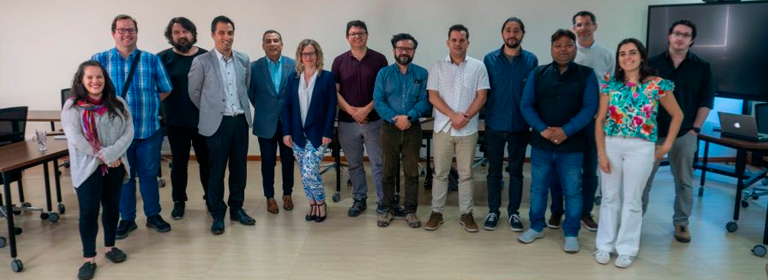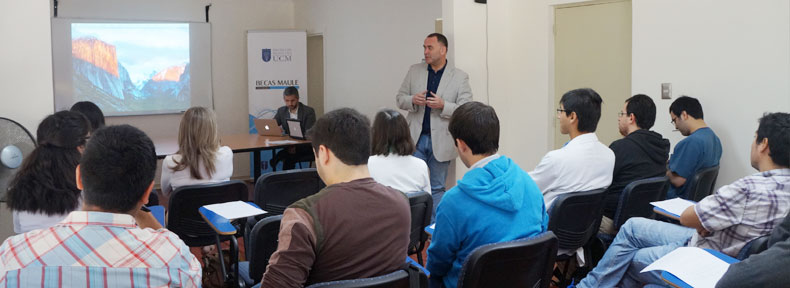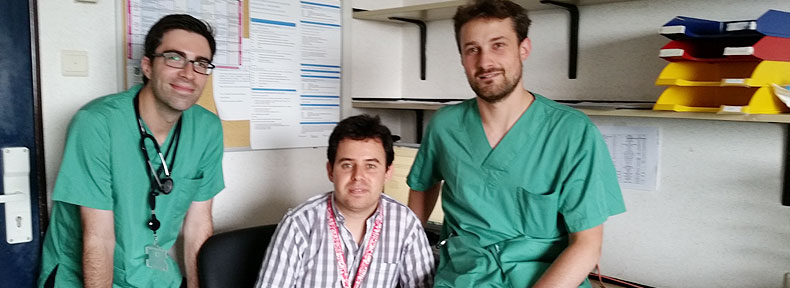The Universidad Católica del Maule (UCM) presented the eight initiatives that were awarded resources to strengthen ties outside Chile, representing six faculties of the campus.
 The role of calcium in fertility and in the conservation of endangered species is one of the topics that will be addressed by the projects awarded to the Universidad Católica del Maule in the call of the National Agency for Research and Development (ANID, in Spanish), entitled «Promotion of International Linkages».
The role of calcium in fertility and in the conservation of endangered species is one of the topics that will be addressed by the projects awarded to the Universidad Católica del Maule in the call of the National Agency for Research and Development (ANID, in Spanish), entitled «Promotion of International Linkages».
With eight approved initiatives, ranging from nuclear energy to biometrics, UCM positioned itself as the institution with the highest number of awards in the country, surpassed only by the Universidad Católica de Valparaíso, which will execute nine projects.
«This year, we achieved outstanding results, thanks to all of you,» said the campus Vice Rector for Research and Graduate Studies, Ph.D. Hernán Maureira, in a meeting with the scientists who will lead the proposals.
«We remain as a benchmark for international collaboration. This gives us the opportunity to host visiting academics and strengthen our linkage policy,» he added.
For Ingrid Carvacho, director of one of the selected initiatives, the resources are fundamental for getting to know high-tech equipment abroad.
«Our project includes visualizing some proteins in the ovum and for that we will need high-resolution microscopy, equipment not currently available in Chile. The research assistant of my laboratory will do an internship at the University of Massachusetts, to observe the proteins and their interaction with state-of-the-art equipment,» said the also in charge of the Laboratory of Reproductive Physiology of the UCM School of Medicine.
“When a sperm fertilizes an oocyte,» she pointed out, «the first signal within the egg is an increase in intracellular calcium. For calcium to reach the egg, specialized proteins called ion channels are essential, which I have been studying since my doctorate and which ultimately modulate fertility. The novelty now is that we will study mechanisms to help preserve species through in vitro fertilization, particularly felines, such as the winking cat, together with my colleague Daniel Veraguas.»
 International network against gender-based violence
International network against gender-based violence
Equally ambitious is the proposal of Helena Román, Ph.D. in Sociology, who plans to create an international network of experts addressing violence against women.
The academic of the School of Social Work of the campus leads a project financed by the Regional Government. The project seeks to generate a platform for monitoring complaints that incorporates all the institutions involved in the prevention, management and reparation for victims and survivors.
«We want to see what is being done in other countries, in order to have a theoretical basis and adopt best practices before developing and piloting the platform. It will be a kind of intranet and there will also be an application for the women themselves. We want to avoid over-intervention, re-victimization and cases being lost,» she said.
According to Jorge Burgos, the director of Outreach at UCM, the initiatives, covering diverse topics such as geomatics, neuroscience, microbial resistance and multilingualism, reflect a growth in cutting-edge research within the university. «The link with the environment is much more powerful when we connect global problems and perspectives, which is what distinguishes these projects. Our interest is also in anticipating the needs that researchers will have during the development of their projects and thus supporting them in the best possible way,» he said.













